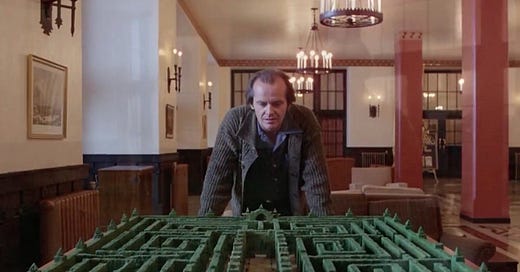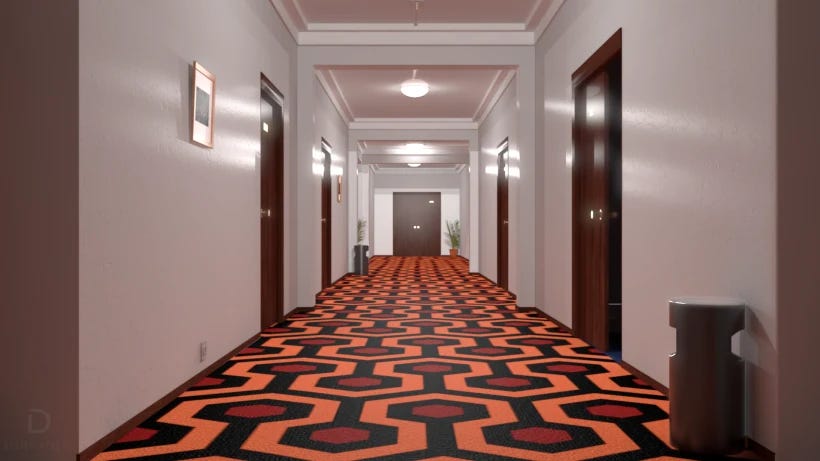Loneliness is a deeply human experience, and it often finds its way into the realms of literature and film, where authors and directors use various metaphors to depict the complexities of solitude. This essay delves into the themes of loneliness and confinement, symbolized by labyrinths, as seen in the classic horror novel The Shining by Stephen King and its cinematic adaptation by Stanley Kubrick. We will explore how these works masterfully intertwine the psychological impact of isolation with the physicality of maze-like structures.
Loneliness is frequently portrayed as a psychological labyrinth, trapping individuals in a maze of their thoughts and emotions. In The Shining, Jack Torrance, the central character, becomes the caretaker of the Overlook Hotel during its winter closure. Isolation in the sprawling, snowbound hotel mirrors the feelings of entrapment and disconnection experienced by Jack and his family. The Overlook Hotel, with its vast, empty corridors and eerie, empty rooms, becomes a labyrinth of isolation, where the characters confront their inner demons.
Labyrinths, both physical and psychological, serve as powerful symbols of isolation. The vast hedge maze outside the Overlook Hotel, as depicted in the film adaptation, becomes a labyrinth of terror for Danny Torrance. Its intricate, high hedges represent his isolation and vulnerability, as well as the predatory nature of his father, who stalks him within the maze. This labyrinthine setting reflects the psychological landscape of the characters, where they navigate their fears and vulnerabilities while physically trapped in the hotel.
The Shining is a masterclass in psychological horror, effectively using the labyrinthine Overlook Hotel as a mirror to the characters' increasing loneliness and descent into madness. The isolation and confinement of the hotel work in tandem with the supernatural elements, creating a sense of claustrophobia and dread. Jack's growing insanity and violent tendencies represent the destructive force of loneliness, where one is left to grapple with inner demons.
In The Shining, loneliness and labyrinths are seamlessly intertwined, serving as both metaphors and physical manifestations of the characters' psychological turmoil. The Overlook Hotel's labyrinthine architecture symbolizes the isolation that Jack, Wendy, and Danny experience, and the hedge maze becomes a harrowing representation of their struggle to escape their own fears. Through the lens of this classic work, we are reminded that loneliness is not just a state of physical isolation but a complex and terrifying emotional labyrinth where the darkest aspects of human nature may emerge.
The Shining invites us to confront our own fears and vulnerabilities, navigating the intricate labyrinth of our inner worlds, much like the characters who journey through its eerie corridors and endless hallways.








One of my favorite films. Mainly because I adore Scatman Crothers. But it is a true meditation on loneliness, and our responsibility to rule over it. xo
Labyrinths have one way in (and always to a center) and one way out back on the same path you took inwards. A maze has path choices with dead ends. The difference is critical. That said, great post! I love these physical spaces as places of psychological completeness (labyrinth) and psychological confusion. I just finished The Haunting of Hill House by Shirley Jackson. The house features a concentric circle design of rooms with the innermost room being the place where the four characters mingle and mix as if they were four voices in one head. Ultimately one (or more, depending on how you read it) of those characters is extremely lonely and regularly disoriented and lost in the house. The maze-like nature of haunted houses (where you can't discern which room leads to which room) is such a trope and like all tropes became one for a good reason! So effective as a metaphor for psychological disintegration, confusion and isolation.